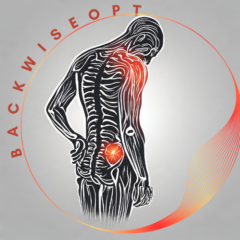
Morning stiffness is really painful.
Osteoarthritis (OA) and other kinds of arthritis, as well as inactivity, can all manifest as morning stiffness. In addition, morning stiffness is a result of spine distortion. Lack of adequate sleep can result in morning aches.
What is stiffness? What causes the stiffness?
Stiffness generally acts as a force resistor. When someone applies force to joints, stiffness prevents muscles from bending.
Take a piece of rubber and try to stretch it; after you stop applying pressure, the rubber will return to its original shape. We experience resistance in the rubber as we use that force on it. This resistance resembles the rigidity of muscles. It feels as tight as a muscle. The resistance increases with increasing rubber thickness, but what about muscles? What factor, if any, is responsible for the stiffness in the muscles?
When a muscle is tight and difficult to move, that is how you describe the condition. Aches and pains in the muscles can occasionally accompany it. The stiffness we are suffering from is unrelated to exercise.
After a long rest period, stiffness can sometimes result from prolonged sitting. But what precisely is rigidity’s outline?
- Lack of exercise
- Long periods of minimal motion or resting for long hours.
- Sitting long hours behind the desk
- Pregnancy
- dehydration
Morning Stiffness- How does it feel?
A sign of arthritic conditions like osteoarthritis is morning stiffness. It is possible to classify it as an inflammatory form of arthritis. Long-term repetition of the same action might result in stiffness.
Morning stiffness may be brought on by sleeping incorrectly or in the same position. As we get old, we go through this.
A particular organ with this issue feels like it is hardening and becoming less flexible. The most frequent complaint brought up by patients at doctors’ offices is stiffness in the back.
Still, stiffness in the fingers or when making a fist is also prevalent. Unfortunately, morning stiffness returned after a sudden exercise or any other activity. Morning stiffness typically lasts for less than an hour.
What Causes Stiffness Morning
Sometimes it might be a symptom of other issues, or aging can cause it. Remember the stiffness length and whether it returns after specific actions.
The duration:
- Osteoarthritis is to blame if the pain lasts for a few minutes and goes away following specific exercises.
- Rheumatoid arthritis is the most frequent inflammatory arthritis and is likely to develop if it persists for a while.
We should draw attention to the fact that weak muscles are more likely to stiffen. Most rheumatologists agree that sitting still for a long time, like watching TV or taking long naps, is the cause.
Stiffness Pain – What to do if we are recently dealing with stiffness?
Try extending the amount of time you spend in bed if you feel stiff after a prolonged rest period, such as while sleeping. Try to move around a little during this morning’s hour of relaxation. Once you feel like this stiffness has gone away, slowly start making some basic moves. Pulling your leg to your chest and maintaining it is the best position for this issue. Try to move softly and gradually increase your movements because sometimes, even this position is difficult to maintain.
How to manage not to get stiff in the morning?
After a long day, we try to get some rest by going to bed, but the worst thing we can do is wake up stiff. What can you do in this situation to handle that? One factor that may impact morning pain is the posture we choose to sleep in. Here are some things you can do to improve your morning experience. Here are some pointers:
- Please keep track of the source of your back discomfort if it:
- Sleeping postures cause it.
- Inflammations that are causing the pain
- outside stress
- other medical diseases like rheumatoid arthritis
- Back discomfort can be significantly exacerbated by low vitamin D levels.
- Suppose you are not dealing with chronic back pain. In that case, yoga is a fantastic way to massage your muscles and relieve stress. Moreover, the ideal exercises to stretch and relax do not put too much strain on the joints. Therefore, it might be a helpful strategy for gradually lessening pain.
- One thing you should think about is your sleeping position.
- If you have excess body fat that prevents your back from resting flat on the bed, placing a pillow beneath your knees may help to reduce strain on the back joints.
